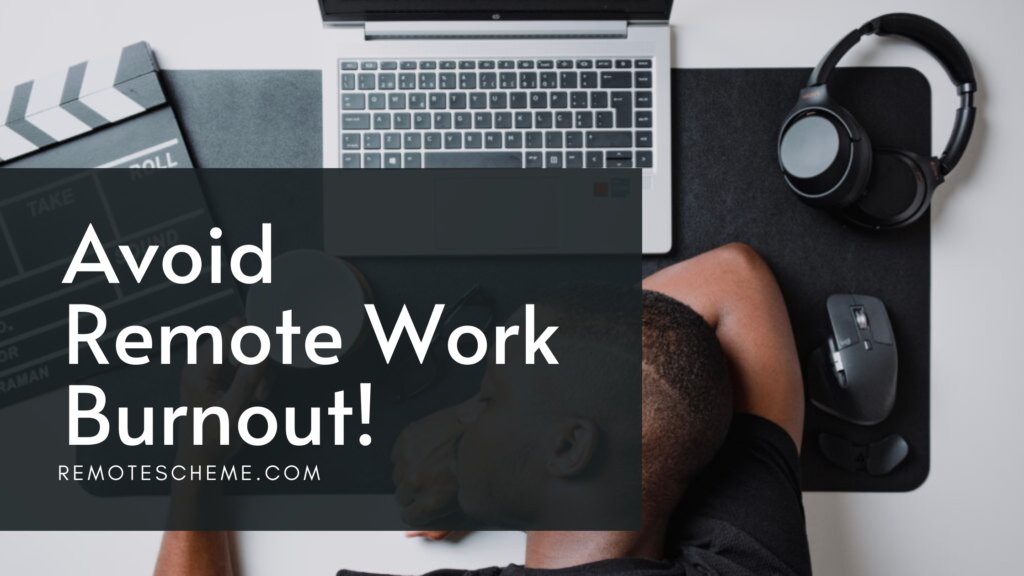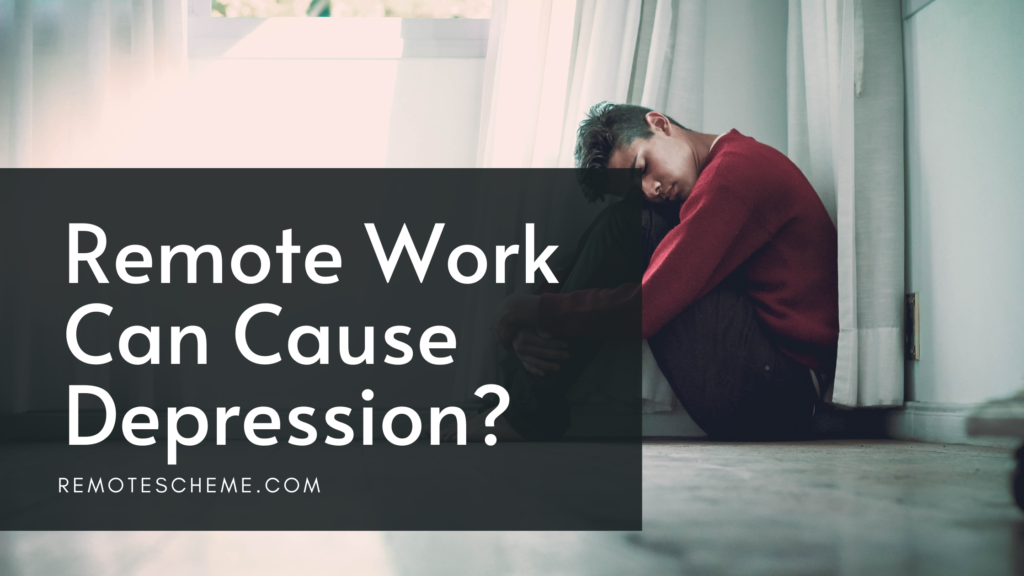If you’ve been working remotely for quite some time now, it may be getting old and tedious. Therefore, you may be wondering how to avoid burnout when working remotely.
There are many ways to mitigate the risk of feeling burnt out during remote work. They all revolve around taking care of mental health.
This can be done through proper self-care and getting enough sleep. It can also be achieved by setting clear boundaries between work and leisure time.
Read on to learn more about how you can minimize the chances of burnout when working from home.
Useful Tips To Avoid Remote Work Burnout
If you work remotely, here are some highly effective measures you can take to minimize the risk of experiencing burnout.
#1. Take Breaks
This may seem obvious, but many people fail to do it. When working remotely, it’s essential that you take regular breaks so that you don’t wear yourself out.
A break can mean different things to different people. You can spend your break stepping out to take a walk and get some fresh air. Other ways you can use your break are to make a quick snack or spend some quality time with your family.
Whatever you choose to do, your break activity should be one that helps you relax and unwind. By disconnecting for a bit, you’ll have a second wind to get back to work with even higher efficiency and productivity.
#2. Separate Work And Leisure Hours
When you’re working from home, you lose the inherent distinction between work time and personal time that comes with leaving the office.
Working from home makes it much more likely that your work and leisure hours will blend together, and this is a trap you want to avoid.
In order to do so, you need to establish clearly defined boundaries between the work phase of your day and the rest of your day.
You can do so by strictly adhering to certain working hours. If that’s simply not the nature of your job, then you can create a schedule of your own.
The most important thing is that you have a good chunk of personal time each day in which you can completely take your mind off work and focus your energy on other aspects of your life.
#3. Maintain A Healthy Sleep Schedule
Another thing that you should take very seriously is getting enough sleep. If you have a job that involves a high-pressure work environment, you may be tempted to sacrifice sleeping hours to get all your work done.
However, this is a slippery slope that can cause you to spiral into a state of consistent sleep deprivation. It goes without saying that this doesn’t bode well for your health.
In fact, it’s actually counterproductive. By getting your eight hours of sleep on a daily basis, you’ll find yourself being more energetic and more efficient when completing work tasks.
#4. Don’t Work In Isolation
The biggest advantage of working from the office is that you and your colleagues are under the same roof. This creates a collaborative environment of comradery that makes you feel that you’re a part of something.
When working remotely, this is simply not the case. People that have been working from home for a long time can start to feel that they are working in isolation, which can take a toll on their mental health.
Therefore, it’s essential that you maintain constant communication with your colleagues through phone calls and video conferencing.
#5. Don’t Neglect Self Care And Mental Health
When we get caught up in the rigors of life, we often forget to take care of our mental health. This, as opposed to physical burnout, is the main driving force of burnout for those working remotely.
Mental exhaustion can severely limit your productivity and motivation. Therefore, you should make it a priority to maintain a high level of mental health by engaging in mind-clearing activities such as yoga or meditation.
In short, you shouldn’t forget that there’s more to life than just work and make time in your day to do the things that bring you joy.
#6. Work From Various Locations
Sure, working from home does have its perks and conveniences. However, it can also become a bit stale with time. Constantly working in the same environment can make you more prone to being burnt out and unmotivated.
The best way to combat this is to mix things up a bit. Try working from different places, possibly a quiet cafe or a community club.
#7. Take Vacations
As we’ve previously mentioned, you shouldn’t lose sight of the fact that there’s more to life than work.
Therefore, you should take a well-deserved vacation from time to time. Taking a few days off can be an excellent way to get yourself feeling rejuvenated. Perhaps you can make travel arrangements to a place you’ve always wanted to visit.
Once you get back, we guarantee that you’ll have put that feeling of being burnt out in your rear-view mirror.
#8. Know Your Limits
Finally, it’s important to be well aware of your breaking point when working remotely. This is easier said than done when you’re immersed in work for days on end.
However, being self-conscious of when you’re approaching that point of mental exhaustion is key to avoiding being in that unenviable state.
This is made much easier when you follow the previously mentioned tip of setting boundaries between work and personal time.
Conclusion
With the rise of the pandemic, the way we work has shifted dramatically. As life has gradually gone back to normal, these changes are still very much prevalent. So, how do you avoid burnout when working remotely?
The key to maintaining your energy and motivation during remote work is to pay close attention to your mental health.
To steer clear of mental exhaustion, you should make sure to take regular breaks, set boundaries between your work and leisure time, and get enough sleep.
You should also keep in touch with your colleagues through various communication channels to avoid the feeling that you’re working in isolation.




